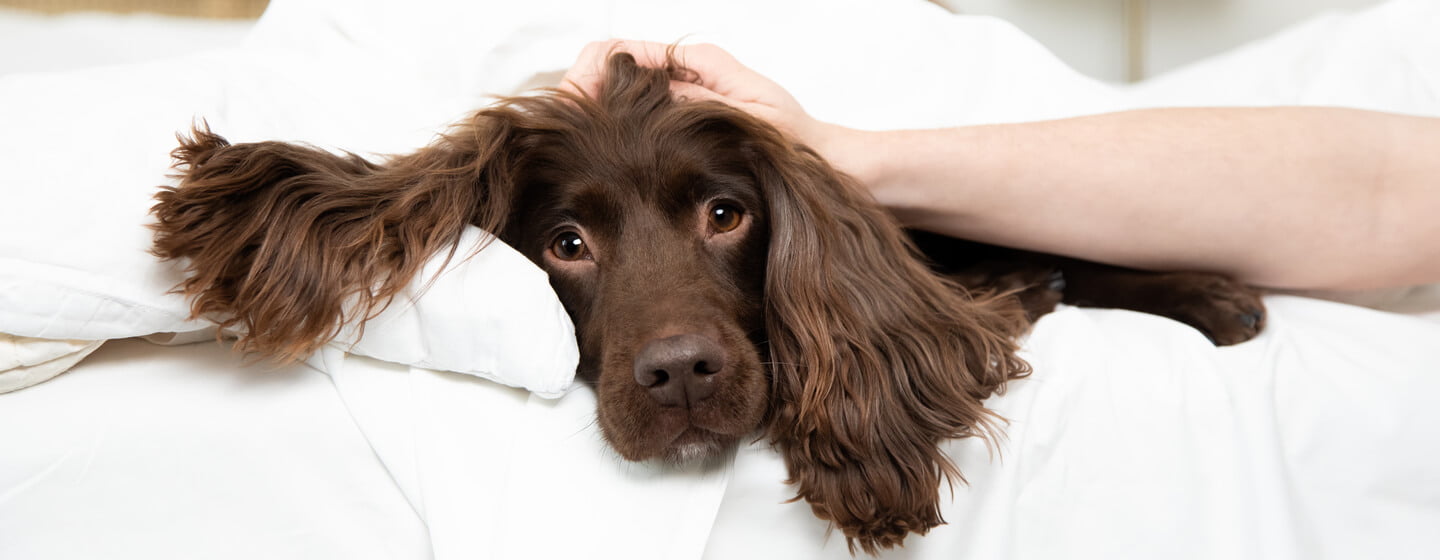Dogs have long been known as man’s best friend, providing companionship, loyalty, and endless joy to their owners. One peculiar behavior that often leaves us puzzled is their constant need for sleep. It seems like dogs can sleep anywhere, anytime, and for extended periods. But why do dogs always sleep? Is there a specific reason behind their seemingly never-ending slumber? In this article, we will explore the fascinating world of canine sleep patterns and delve into the various factors that contribute to their snooze-filled lives.
Sleep is an essential aspect of any animal’s life, including dogs. Just like humans, dogs require sufficient rest to maintain their physical and mental well-being. However, the sleep patterns of dogs differ significantly from ours. While humans have a distinct sleep-wake cycle, dogs have a more flexible and adaptive approach to sleep. They are polyphasic sleepers, meaning they have multiple sleep-wake cycles throughout a 24-hour period.
 Reasons of Why Do Dogs Always Sleep
Reasons of Why Do Dogs Always Sleep
Dogs, much like humans, have distinct sleep patterns that play a vital role in their overall health and well-being. Understanding these patterns can shed light on why dogs always seem to be in a perpetual state of slumber.
1. REM Sleep
One of the key sleep stages for dogs is Rapid Eye Movement (REM) sleep. During REM sleep, dogs experience vivid dreams, characterized by rapid eye movement, increased brain activity, and muscle relaxation. It is during this stage that dogs may twitch, bark, or even run in their sleep, mimicking their dream activities. REM sleep is crucial for dogs as it helps with memory consolidation, learning, and emotional processing.
2. NREM Sleep
Non-Rapid Eye Movement (NREM) sleep is another important sleep stage for dogs. NREM sleep is further divided into three phases: N1, N2, and N3. N1 is the transition phase between wakefulness and sleep, while N2 is a deeper sleep stage where the body temperature drops, and the heart rate and breathing become more regular. N3 is the deepest stage of NREM sleep, where the body repairs and regenerates tissues, strengthens the immune system, and releases growth hormones.
3. Sleep Duration and Patterns
Dogs, on average, sleep for about 12 to 14 hours a day, although this can vary depending on factors such as age, breed, and activity level. Puppies and senior dogs tend to sleep even more, as their bodies require additional rest for growth and repair. It’s important to note that dogs are crepuscular animals, meaning they are most active during dawn and dusk. Therefore, they may have shorter bursts of sleep during the day and longer periods of sleep during the night.
4. Factors Influencing Sleep
Various factors can influence a dog’s sleep patterns. Temperature plays a significant role, as dogs are sensitive to extremes in heat or cold. Providing a comfortable sleeping environment with appropriate bedding and temperature control can help promote better sleep. Noise levels can also disrupt a dog’s sleep, so it’s important to create a quiet and peaceful space for them to rest.
Additionally, dogs are highly social animals, and their sleep can be influenced by their human companions. Dogs are known to adjust their sleep patterns to align with their owners’, so maintaining a consistent sleep routine can help regulate their sleep-wake cycles.
Practical Recommendations for why do dogs always sleep
Here are some of the recommendations for why do dogs always sleep
1. Create a Comfortable Sleeping Environment
Providing a cozy and comfortable sleeping space is essential for ensuring quality sleep for your dog. Consider investing in a well-padded bed or mattress that offers proper support for their joints and muscles. Choose a size that allows them to stretch out comfortably. Additionally, ensure the sleeping area is in a quiet and peaceful location, away from excessive noise and distractions.
2. Maintain a Consistent Sleep Routine
Dogs thrive on routine, and establishing a consistent sleep schedule can help regulate their sleep-wake cycle. Aim to create a daily routine that includes regular sleep times and wake-up times. Consistency will help their internal clock adjust and promote better sleep patterns. Avoid drastic changes in their sleep schedule whenever possible.
3. Provide Mental and Physical Stimulation
Engaging your dog in regular mental and physical activities during their waking hours can contribute to better sleep. Dogs need both mental and physical stimulation to tire them out and help them achieve a more restful sleep. Incorporate activities such as puzzle toys, obedience training, interactive play sessions, and daily walks or exercise to keep them mentally and physically active.
4. Regulate Temperature and Lighting
Temperature and lighting conditions can significantly impact a dog’s sleep quality. Ensure the sleeping area is well-ventilated and at a comfortable temperature. Avoid exposing them to extreme heat or cold. Additionally, consider using blackout curtains or shades to create a dark and sleep-friendly environment. Dogs are sensitive to light, and minimizing exposure to bright lights or excessive natural light can help them sleep better.
5. Minimize Disruptions and Noise
Dogs are light sleepers and can be easily disturbed by noises or disruptions. Create a calm and quiet sleeping environment by minimizing external noises. If your dog is sensitive to sounds, consider using white noise machines or soothing music to drown out any disruptive sounds that may disturb their sleep. Additionally, establish boundaries with family members or other pets to prevent unnecessary disturbances during their sleep.
6. Consider Age and Breed-Specific Needs
Different dogs have varying sleep needs based on their age and breed. Puppies and senior dogs, in particular, require more sleep and may benefit from additional napping opportunities throughout the day. Research your dog’s breed to understand their specific sleep requirements and adjust their routine accordingly. Older dogs may also benefit from orthopedic beds or additional support for their joints.
By implementing these practical recommendations, you can create an optimal sleep environment for your furry friend, promoting their overall health and well-being. Remember, just like humans, dogs need quality sleep to recharge, recover, and lead happy, energetic lives. So, prioritize their sleep needs and ensure they have the restful slumber they deserve.
 Why do dogs always sleep – Conclusion
Why do dogs always sleep – Conclusion
dogs’ propensity for sleep can be attributed to various factors, including their evolutionary history, age, activity level, and environmental influences. Dogs have adapted to a more sedentary lifestyle through domestication, leading to longer periods of sleep. Understanding their sleep patterns and providing them with the necessary conditions for restful sleep is crucial for their overall well-being.
As responsible dog owners, it is essential to recognize and respect their sleep needs. By ensuring they have a comfortable sleeping environment, a consistent sleep routine, and opportunities for mental and physical stimulation during their waking hours, we can help our furry friends achieve the restful sleep they require. So, let us embrace and appreciate the sleep-filled lives of our beloved canine companions.















 Reasons of
Reasons of 







